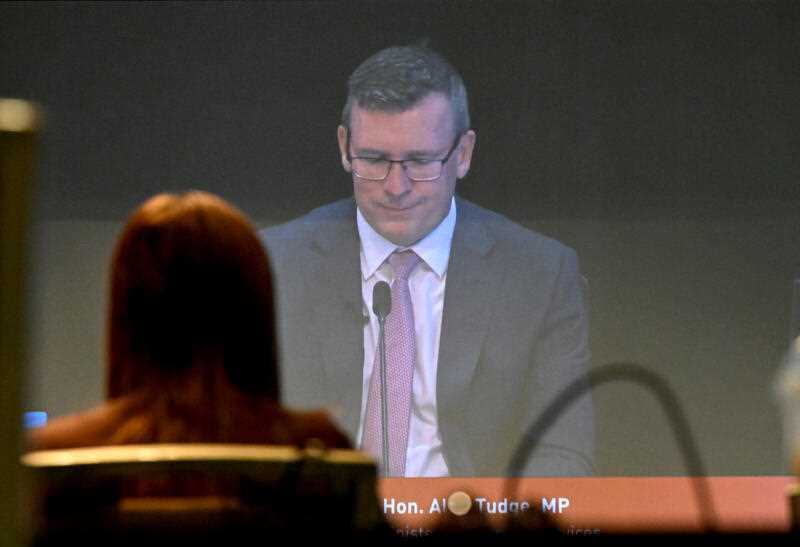A former coalition minister and government departments failed to properly consider the personal heartbreak and harm stemming from the illegal robodebt scheme.
The final report of the royal commission into the scheme, released on Friday, included a chapter examining associated suicides.
“While each of those deaths may have prompted an internal review of the particular case, they did not galvanise either the Department of Human Services or the Department of Social Services into a substantive or systemic review of the problem of illegal, inaccurate or unfair debt-raising,” the report found.
Commissioner Catherine Holmes said the scheme had been “responsible for heartbreak and harm to family members of those who took their own lives because of the despair the scheme caused them”.
“It extends from those recipients who felt that their only option was to take their own life, to their family members who must live without them,” she said.
However, she did not recommend an apology be provided as “an apology by direction is not worth very much”.
Prime Minister Anthony Albanese said the report had exposed “the human tragedy” the scheme represented.
Senior bureaucrats sought to distance the January 2017 death of 28-year-old Rhys Cauzzo, who was being pursued for Centrelink debts, from the department’s processes after media reporting.
The report said that approach was symptomatic of departmental executives’ emphasis on controlling the narrative surrounding the scheme rather than dealing with actual concerns from many quarters about its fairness and legality.
It also found former minister Alan Tudge had sought an investigation so he could write to Mr Cauzzo’s mother and convey that he was “confident that the department had done everything correctly”.
Mr Tudge told her in a letter the department had handled her son’s case “appropriately, professionally and sensitively”.
However, the commission found those conclusions were wrong and the letter was misleading as the error was not minor and Mr Cauzzo’s case was not handled appropriately.
The report identified a second case of suicide, without naming the deceased, saying there was “no evidence Mr Tudge was sufficiently concerned about the circumstances” of the death.
“By July 2017, (he) knew that at least two people had died by suicide and that their family members had identified the impact of the scheme as a factor in their deaths,” it said.
“Nonetheless, Mr Tudge failed to undertake a comprehensive review into the scheme, including its fundamental features, or to consider whether its impacts were so harmful to vulnerable recipients that it should cease.”
While the report did not recommend a general compensation scheme for families, the commissioner noted there was an existing scheme for “compensation for detriment caused by defective administration”.
Mr Tudge rejected the observation he was indifferent to suicides that were brought to his attention, saying it was standard practice to investigate every suicide to be linked with Centrelink.
“Sadly, each year, social workers at Centrelink deal with about 5000 referrals for customers at risk of suicide.”
Suicide Prevention Australia CEO Nieves Murray said public servants should be aware of issues beyond the legality of schemes.
“They should also be telling ministers about the potential risk to people’s lives where a government initiative is going to exacerbate distress,” Ms Murray said.
She said a National Suicide Prevention Act would ensure government departments looked at policies and priorities through a suicide prevention lens.
Lifeline 13 11 14
beyondblue 1300 22 4636
By Paul Osborne in Canberra



